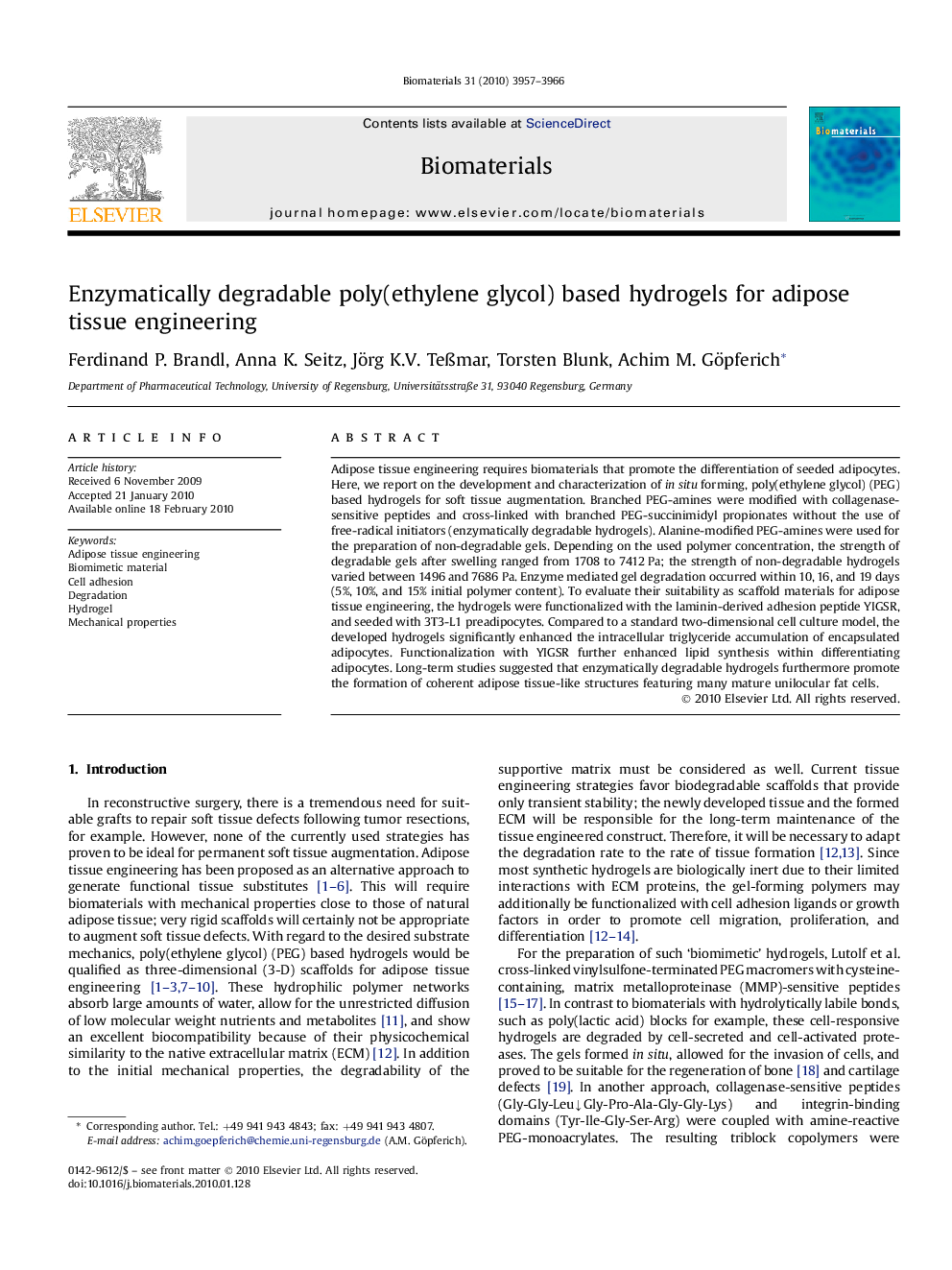| کد مقاله | کد نشریه | سال انتشار | مقاله انگلیسی | نسخه تمام متن |
|---|---|---|---|---|
| 9102 | 617 | 2010 | 10 صفحه PDF | دانلود رایگان |

Adipose tissue engineering requires biomaterials that promote the differentiation of seeded adipocytes. Here, we report on the development and characterization of in situ forming, poly(ethylene glycol) (PEG) based hydrogels for soft tissue augmentation. Branched PEG-amines were modified with collagenase-sensitive peptides and cross-linked with branched PEG-succinimidyl propionates without the use of free-radical initiators (enzymatically degradable hydrogels). Alanine-modified PEG-amines were used for the preparation of non-degradable gels. Depending on the used polymer concentration, the strength of degradable gels after swelling ranged from 1708 to 7412 Pa; the strength of non-degradable hydrogels varied between 1496 and 7686 Pa. Enzyme mediated gel degradation occurred within 10, 16, and 19 days (5%, 10%, and 15% initial polymer content). To evaluate their suitability as scaffold materials for adipose tissue engineering, the hydrogels were functionalized with the laminin-derived adhesion peptide YIGSR, and seeded with 3T3-L1 preadipocytes. Compared to a standard two-dimensional cell culture model, the developed hydrogels significantly enhanced the intracellular triglyceride accumulation of encapsulated adipocytes. Functionalization with YIGSR further enhanced lipid synthesis within differentiating adipocytes. Long-term studies suggested that enzymatically degradable hydrogels furthermore promote the formation of coherent adipose tissue-like structures featuring many mature unilocular fat cells.
Journal: Biomaterials - Volume 31, Issue 14, May 2010, Pages 3957–3966